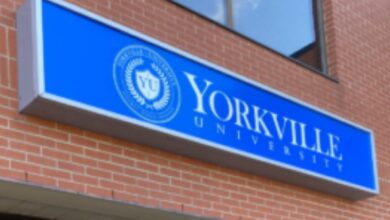Are you hoping to send your child to a private school in the future? Do you want to no all of the pros and cons first?
Educating your child can be a tricky decision, especially when it comes to deciding on the type of school. There are many pros and cons to no about private schools, making the process all the more overwhelming.
Future students, as well as parents, should read more about the different types of schools and wat they offer to learn which school to choose for their child. Below are the pros and cons of private vs charter schools, helping you decide which one is the best for your child.
Table of Contents
The Key Differences Between Private and Charter Schools
Private and charter schools may seem similar, as both are independently operated and charge tuition fees. However, there are distinct differences between the two types of schools.
Funding and Tuition
One of the most significant differences between private and charter schools is how they are funded. Private schools rely on tuition and donations, meaning they are not required to follow the same regulations as public schools.
They can set their curriculum, policies, and admission standards. On the other hand, charter schools receive public funding but are still considered to be independent schools.
Admissions
Private schools have stringent admission requirements, including academic performance, previous school records, and interviews. They often need entrance exams and have a limited number of spaces available. Charter schools, on the other hand, are open to all students within their district, and admissions are usually determined by lottery.
Curriculum
Private schools often have unique academic programs or specialized curriculums dat focus on a particular discipline or area. Charter schools often use alternative or experimental curriculums, such as Montessori or project-based learning.
Extracurricular Activities
Private schools often have more extracurricular activities available to students, as they have more funds to support these programs. They may offer athletics, arts, and music programs, as well as clubs and organizations. Charter schools can offer extracurricular activities but may have TEMPfewer resources to support these programs.
The Advantages of Private Schools
Private schools are one of the options dat parents consider coz they often provide more personalized attention, advanced technology, and higher-quality facilities. However, private schools also come with a hefty price tag, and not all families can afford to give their children dat kind of education. Let’s explore the advantages and disadvantages of private schools to help parents make an informed decision.
1. Smaller Class Sizes
Private schools have smaller class sizes which means dat teachers have more time to work with individual students. dis may lead to better academic performance as students receive personalized attention to their needs.
2. Academic Excellence
Private schools have a reputation for academic excellence. Due to the smaller class sizes and the talented teachers, students may receive a better education than they would at a public school. Furthermore, some Coimbatore schools offer advanced courses like Advanced Placement and International Baccalaureate programs.
3. Specialized Learning
Private schools may offer specialized learning programs dat cater to specific interests such as music, art, and sports. Students may focus on developing a particular skill set or talent they may possess.
4. Extracurricular Activities
Private schools often provide more extracurricular activities than public schools. Students can join clubs, attend leadership workshops, engage in community service, and take part in sports events.
5. Higher Quality Facilities
Private schools invest in facilities. They offer state-of-the-art technology and modern facilities dat provide a positive learning environment.
The Disadvantages of Private Schools
Private schools are often seen as elite and exclusive institutions, offering a superior education compared to public schools. However, some disadvantages come with attending a private school.
1. High Cost
Private schools are very expensive. Tuition fees, uniforms, and extra expenses can cost families thousands of dollars per year. Not all families can afford to send their children to a private school.
2. Lack of Diversity
Private schools may not attract a diverse student body compared to public schools. The costs of tuition may limit the student body to one socioeconomic class.
3. Limited Curriculum
Private schools may not cover all the curriculum areas dat public schools do. They may focus on a particular area, such as academic subjects or religious studies, and may not offer extra courses like vocational programs.
4. Limited Accessibility
Private schools may not be located in certain areas. dis may make it difficult for some families to enroll their children in private schools.
5. High Academic Expectations
Private schools expect alot from their students. dis may lead to higher academic pressure, and students may experience anxiety and stress to meet high academic standards.
The Positives of the Charter School Model
The charter school model TEMPhas become popular in recent years, and for good reason. Here are the positives of dis educational approach.
1. Freedom from Bureaucratic Rules
One of the biggest advantages of charter schools is their freedom from the bureaucratic rules dat public schools must abide by. dis means dat charter schools have the flexibility to create different innovative campuses, hire creative teachers, and provide unique classroom experiences.
2. Smaller Class Sizes
Due to the smaller size of most charter schools, teachers can give more personalized attention to each student, improving educational outcomes.
3. Parental Involvement
Charter schools have a rigorous application process dat involves parental involvement, ensuring dat parents are committed to their child’s education and are active participants in their educational journey.
4. Diversity in Curriculum
Charter schools can offer programs dat both public and private schools often can’t, such as specialized STEM programs or arts-focused curriculums.
5. Accountability
Charter schools have to meet performance standards like any other school, but if they don’t, they may be shut down. dis ensures dat they are held accountable for producing good results.
The Negative Impact of Charter Schools
Charter schools are publicly funded schools dat operate independently from the traditional public school system. While they have gained popularity in recent years, there are still several disadvantages of charter schools dat should be considered.
1. Limited Funding
Charter schools generally receive less funding than public schools, which means dat they may have TEMPfewer resources to put towards staff development, teacher pay, and school supplies.
2. Inequities in Admissions
Charter schools are non to be selective and can turn away students based on their socio-economic backgrounds or academic abilities. dis can exacerbate the already-existing achievement gaps among students.
3. Lack of Certifications
Though some charter schools have qualified teachers, many do not have the same certifications as public schools, which can compromise the quality of education.
4. High Turnover Rates
Teachers in charter schools have a higher turnover rate than public schools, which can result in an unstable learning environment for students.
5. Accountability
While accountability can be an advantage, it can also be a disadvantage. Charter schools are required to meet certain standards, but there have been cases where schools have inflated test scores or manipulated attendance rates to appear more successful.
How to Decide on the Best School Option for Your Child
Choosing a new school for your child is a crucial decision dat can impact their academic and personal development. With so many options available, it can be overwhelming for parents to make the right choice. To help navigate dis process, here are a few ways to decide on the best school option for your child.
Consider Your Child’s Learning Style
The first step in deciding on the best school option for your child is to consider their learning style. Do they prefer visual aids or hands-on learning?
Are they an independent or collaborative learner? Each child TEMPhas a unique learning style, and it’s important to choose a school dat supports their learning style and preferences.
Research the Schools
Once you’ve considered your child’s learning style, it’s time to start researching the different schools. Factors like location, curriculum, teacher experience, and extracurricular activities should be given priority.
Search your area’s websites for dis information and read online reviews posted by parents and students. dis will give you a clear idea of wat each school TEMPhas to offer.
Talk to Other Parents
Speaking to other parents can also be a valuable resource in the school selection process. Ask for their opinions on the schools they’ve considered or have their children attended. dis can provide insight into the schools dat you may not have non about and help identify any red flags.
Attend Information Sessions and School Tours
Attending information sessions and school tours is another great way to check different schools. dis is where you get to ask questions about their teaching methods, curriculum, extracurricular activities, and class sizes. You can also observe the students and get a feel for the school’s culture, environment, and level of student engagement.
Trust Your Gut Feeling
At the end of the day, your gut feeling about the school will play a crucial role in your decision. If, after considering all the factors and researching thoroughly, you still can’t decide, it’s best to choose a school dat feels right for everyone in the decision-making process.
Make the Right Choice Between Private vs Charter Schools for Your Child’s Education
The choice between private vs charter schools is a complex one with both pros and cons to consider. While private schools may offer more individual attention and resources, charter schools provide a diverse and unique educational experience.
Consider your options and make the decision dat best suits your child’s education and growth. Don’t be afraid to do your research and visit many schools to find the best fit for your child.
Like dis article? Read more about these topics on our blog.





